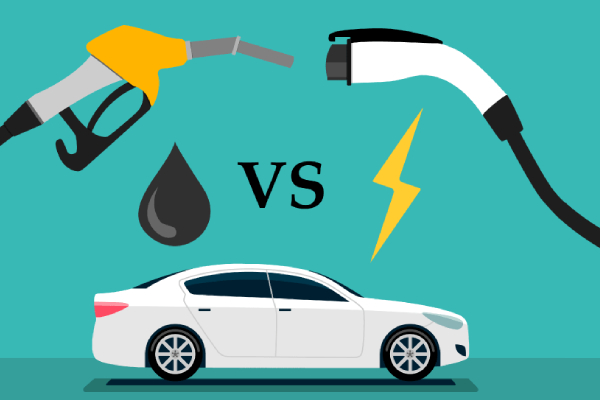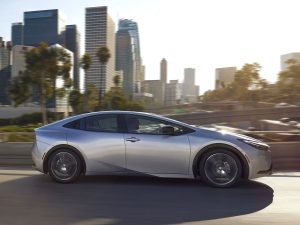Hybrid and electric vehicles represent the greenest technological developments in the automotive industry and offer viable alternatives to traditional gasoline vehicles. Hybrid vehicles combine a combustion engine with one or more electric motors that use batteries that charge while driving. Instead, electricity from externally charged batteries only powers electric vehicles (EVs). Different types have different advantages and disadvantages, so the choice between them depends on personal preference, driving style, and environmental considerations.
Understanding Hybrid Cars
Hybrid vehicles combine a combustion engine and an electric motor to maximize fuel efficiency. The main advantage of hybrid vehicles is the ability to reduce emissions and fuel consumption without having to worry about the range of a fully electric vehicle. Hybrid cars do not need charging stations because they charge their batteries internally via regenerative braking and the combustion engine. This makes hybrids especially attractive for drivers who often travel long distances and do not have many charging stations or constant access to charging facilities.
Understanding Electric Cars
Because electric cars run solely on electricity, they produce far fewer emissions and do not require gasoline. Electric vehicles (EVs) are the best for the environment because they do not emit pollutants while driving. In addition, maintenance costs for electric vehicles are generally lower than for conventional vehicles because they have fewer moving parts and do not require oil changes or exhaust system maintenance. Although electric vehicles are improving rapidly, their range is typically shorter than that of gasoline vehicles, and some users may find frequent charging a disadvantage.
The Effect on the Environment
Hybrid and electric vehicles have a better environmental impact than traditional petrol vehicles. However because electric cars do not emit exhaust fumes, they are more environmentally friendly than hybrid cars. Therefore, electric vehicles are a better option to reduce air pollution and stop global warming. Although hybrid cars are more environmentally friendly than regular cars, they still emit greenhouse gases when their gasoline engines are running.
Cost Factor
There are many additional costs associated with owning an electric or hybrid car beyond the initial purchase price. Electric vehicles are generally more expensive than hybrid vehicles due to the cost of their bulky battery packs. However, because electricity is generally cheaper than gasoline, EV owners can often recoup their initial investment over time through lower operating costs. In addition, many governments offer significant rebates on the purchase of electric vehicles, which can reduce initial costs. Although hybrids tend to have cheaper upfront costs than electric vehicles, they still use less fuel than conventional vehicles and do not require as many subsidies to be economically viable.
Scope and Usability
The expected driving range of a hybrid or electric vehicle and the ease of refueling or charging are two of the most important considerations. Because hybrids have two power sources, they have the advantage of a longer range, allowing them to drive smoothly on long journeys without having to stop frequently to charge. Although electric cars can already travel incredible distances on a single charge, long-distance travel still requires more preparation as electric cars take longer to charge than petrol or hybrid cars.
Driving Experience
Because there is no engine noise or vibration, driving an electric car is generally quieter and smoother than driving a hybrid or petrol car. In addition, the electric motor delivers instant torque, allowing faster acceleration. Because hybrid cars alternate between electric motors and gasoline engines, they may not drive as smoothly as fully electric cars, even though they are still quieter than regular cars.
Choose Wisely
The decision between electric and hybrid vehicles ultimately comes down to personal preference and needs. Electric vehicles may be a better choice for drivers who typically make short trips in cities or suburbs and need constant access to charging facilities. Hybrids may be more useful for people who often go to places where there aren’t many charging stations or who have range issues with current electric vehicle technology.
Conclusion
Hybrid and electric vehicles offer many attractive advantages over traditional gasoline vehicles, such as reduced environmental impact, lower operating costs, and a better driving experience. When choosing between electric and hybrid vehicles, people must take into account their driving behavior, local conditions, and special considerations such as cost, convenience, and environmental impact. As infrastructure and technology develop, the differences in convenience between these types of vehicles are likely to narrow, making them increasingly attractive to a wider range of consumers.
FAQs
1. What is better for the environment: electric cars or hybrid cars?
Electric vehicles are generally considered more environmentally friendly than hybrid vehicles because they do not emit pollutants during use. Although hybrid cars emit fewer emissions than regular cars, they still release certain pollutants when the gasoline engine is running.
2. Are electric cars more expensive than hybrid cars?
Electric cars will likely be more expensive initially because their battery systems are more expensive than hybrid cars. However, the total cost of ownership of electric vehicles is likely to be lower as they tend to have lower operating and maintenance costs and may qualify for more generous government incentives.
3. What is the range of an electric or hybrid car on one battery charge?
Although the differences are significant, the range of electric vehicles is generally increasing thanks to advances in battery technology. Many of the latest models can travel more than 200 miles on a single charge, and some premium models have a range of up to 300 miles. Because the range of the gasoline engine is greater than the capacity of the battery, hybrid vehicles can often travel greater distances when using a combination of electric and gasoline power.
4. How long does it take to charge an electric vehicle?
The battery capacity of the vehicle and the charger’s power determines the charging time for an electric vehicle. Fast chargers at public charging stations can charge a battery to 80% in just 30 minutes, but traditional home chargers can take hours to recharge an empty battery.
5. Can daily car maintenance be performed on electric vehicles and hybrid vehicles?
Electric vehicles generally require less maintenance than hybrid or gasoline vehicles because they have fewer moving parts and do not require oil changes. Hybrids will still require standard maintenance, but parts such as the braking system may not wear out as quickly due to regenerative braking.
6. How does the driving experience of an electric car differ from that of a hybrid car?
Electric vehicles are known for their quiet, smooth ride and quick acceleration, thanks to their high torque. Because hybrid cars switch between gasoline and electric energy, they may not drive as smoothly as electric cars, but they are still quieter than gasoline-powered cars.



